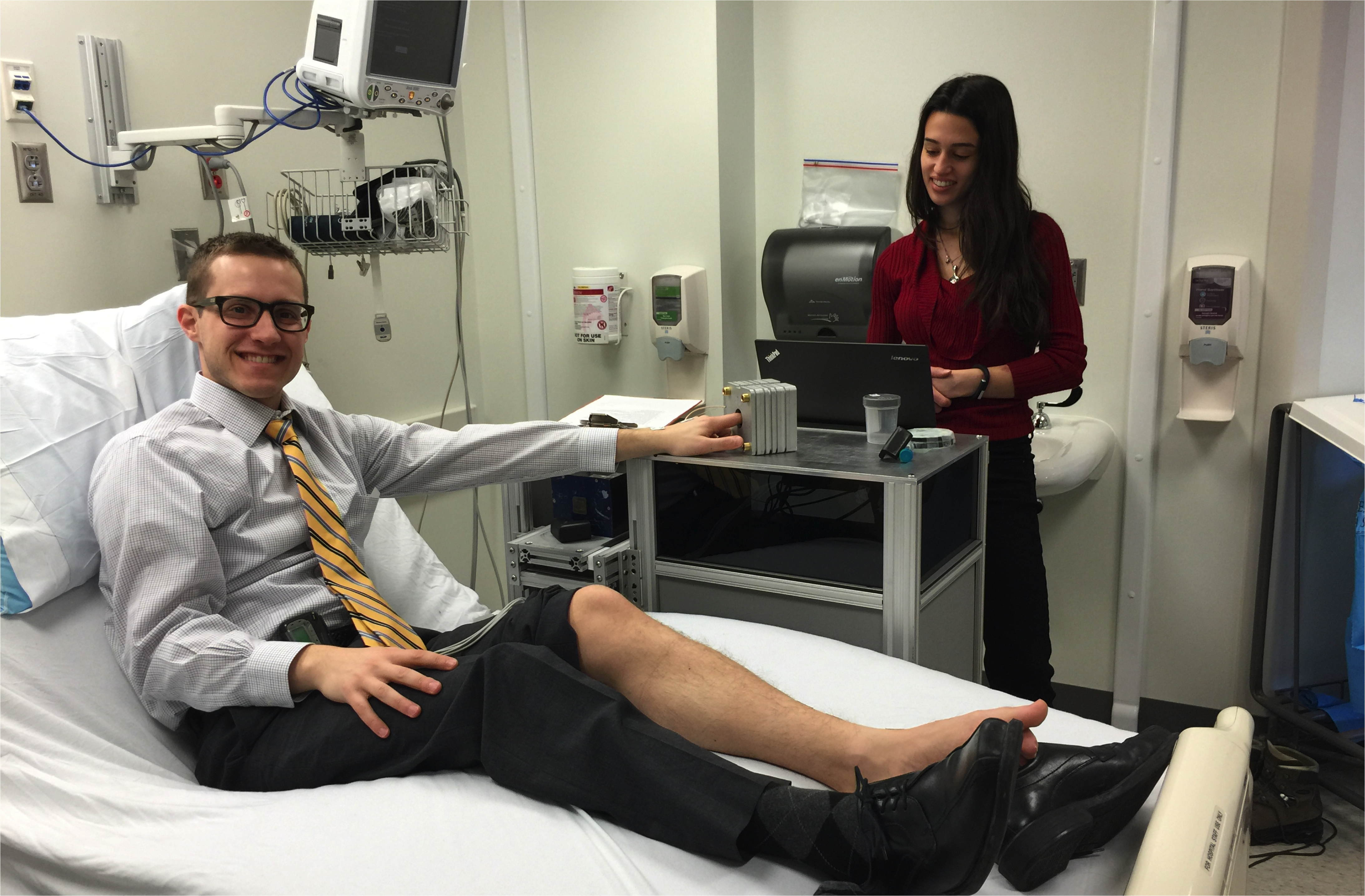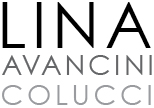Develop Novel Health Hydration Sensor
Advisor: Michael J. Cima (Cima Lab: cima-lab.mit.edu)
Graduate Student Mentor: Lina A. Colucci
We are seeking motivated undergraduate students to join our team at MIT! Undergraduates from near-by universities who can commit 10 hours per week are invited to apply. Payment/class credit may not be possible for non-MIT or Wellesley students.
If you are interested in applying for either of the positions, please email Lina at lcolucci[at]mit.edu with a short paragraph about yourself and interest in this project. We also would like to hear from you if you are interested in summer research positions!
Project Goal
Develop portable magnetic resonance sensors and algorithms to quantitatively measure fluid levels in the body
Project Description
Clinical Motivation Hydration status is a vital sign. It impacts both cognitive and physical performance and yet there is no easy way to measure hydration state today. Congestive heart failure (CHF), for example, leads to excessive fluid accumulation (congestion) throughout the body and is a leading cause of hospitalizations that costs $35 billion (!) annually. The ability to measure fluid status in CHF patients would lead to dramatically decreased costs and improved survival. Help us tackle this problem and build an accurate, non-invasive hydration sensor using magnetic resonance!
Magnetic Resonance Magnetic resonance (MR) is one of the coolest physical phenomena out there! Google[x] uses it their projects, like this. MR technology enables us to get information directly from atoms without any ionizing radiation or negative side effects. We believe MR as a sensing modality will rapidly increase in popularity. Get an early start on learning about and working with this cutting edge technology.
Opportunities This project is a unique opportunity for undergrads to get involved in all phases of a translational research project. You can grow into working on many of these areas over time: the physics of magnetic resonance (MR), mechanical and electrical engineering to build MR sensors, animal work to develop algorithms, MRI imaging work for validation, and clinical trials at MGH. The immediate UROP opening positions to get involved with the project are listed below. The project moves rapidly with lots of papers in the works for the upcoming year. The ultimate goal is to spin out this research into a startup company.
In the News WBUR News Segment and MIT News article about our new grant award that “marries medicine and tech”
Timing
IAP / Spring 2016
Minimum 10 hours per week
Options for credit/pay available
UROP Position #1: Data Scientist
Analyze sensor and physiological data from the two clinical trials that are underway right now at MGH. Uncover insights in the data, develop new algorithms, and apply machine learning to a rich dataset from our novel sensors, MRI, bioimpedance, and clinical data (medical history, blood work, etc.).
Necessary Skills: Excellent programming skills (2+ years computer science), coursework in statistics
What You’ll Learn on the Job: Matlab, R, algorithms to analyze MR data, image analysis software
Bonus Skills: Experience with machine learning
Interview will include: Short programming quiz
UROP Position #2: Hardware Engineer
Build sensors and equipment that will get tested on patients at MGH! You’ll be building radiofrequency coils, heaters, and more.
Necessary Skills: Experience in the machine shop, mechanical design, Solidworks (or other CAD software)
Bonus Skills: COMSOL modeling, Radiofrequency electronics
Interview will include: Show something you’ve built (either side project or class project) and talk through your design and fabrication process.

Lina and Andrew (a physician and collaborator at MGH) test out our magnetic resonance sensors in the Dialysis Unit at Massachusetts General Hospital.
More Details
Subject Matter
Health Sensors, Data Science, Chronic Diseases, Medicine, Biomedical Engineering, Hydration, Magnetic Resonance, Fluid Overload, Congestive Heart Failure, RF Engineering, Entrepreneurship, Cardiology, Kidney Failure, Dialysis, Translational Research, Physiology, Data Science
Recognition and Resume Builders*
- “Acknowledgements in journal papers, conference papers, and theses. Your name will appear in these documents and presentations” when you work on the respective project.
- “Co-author on a journal or conference paper. It normally takes 2 semesters (or summers) of contribution to achieve this. Coauthorship criteria includes: be able to understand and defend the work, and provide at least one of: critical data interpretation, numerical modeling, experiment design & running, and key intellectual contributions.”
- “Recommendation Letters: We will write thorough recommendation letters for jobs or graduate school.”
- “Co-inventorship on a patent may be possible for extraordinary students with very long time commitments.” Being listed as a co-inventor on a patent means you have invented and reduced to practice something completely new.
- Hospital Shadowing Opportunities: We will connect our committed students to our network of doctors at MGH and BWH for shadowing opportunities. Learn first hand about the hospital working environment and what the other end of translational research looks like. Shadowing opportunities may be tailored to the student’s specific interest within medicine.
- “Award Nominations: we will nominate exceptional students for awards,” like the MIT Institute Awards.
*Quoted material from “Undergraduate Researcher Guide” (D. Warsinger)
Expectations for UROPs
- Responsibility and Independence
- Adhere to deadlines set together by you and your Graduate Student Mentor
- Take ownership over your work and actively innovate and solve issues that come up
- Bring interesting ideas and articles you have read to share with the team
- Commitment and Reliability
- UROPs will commit to coming to lab for a certain number of hours per week for the entire agreed upon time period (summer or semester)
- It is expected that advance notice be given when schoolwork or vacation will interfere with that regular schedule.
- Respond in a timely manner to emails and texts
- Priority for UROP openings will be given to students who can commit to more than one term/summer in the lab (contingent, of course, on the student’s performance and continued interest in the subject matter)
- Self-Directed Learning and Good Communication
- Ask questions. Be curious.
- Take responsibility for your own learning. Actively communicate to your Graduate Student Mentor the skills you want to build and type of work you find interesting.
- Give and receive constructive feedback during regular check-ins about what is working/not working/could be done better for a more productive and enjoyable UROP experience.
- Integrity (most important)
- Any work (whether experimental, analytical, or written) must be honest and repeatable
- Proper citations and attribution must always be used
- Always come forth promptly with any mistakes or accidents that may have happened in lab
Expectations for Graduate Student Mentor
- Work with UROP to come up with a project that is both interesting and achievable for them
- Communicate clear expectations and timelines
- Provide context and motivation for the work
- Teach skills and background that cannot be easily learned online
- Provide continuous and honest feedback to UROP. Actively seek out and graciously receive feedback from UROPs.
- Be accessible and available
- Foster a welcoming and supportive environment between self and UROP and amongst other UROPs. Introduce and integrate UROP into the research lab and into collaborations.
- Encourage independent thinking from the UROP
- Customize mentorship based on each students needs and goals
Skills we can help you develop
- How to be a scientist and engineer: learning of particular subject matter, experiment design, planning and running scientific experiments, conducting scientific and medical literature review
- Navigating the medical world: how to interface with physicians and nurses, learn the medical vernacular, exposure to how to design clinical studies in the hospital, etc.
- Animal studies and techniques (for students who commit to at least 2 semesters or 1 semester + 1 summer of research)
- Clinical trials with patients at MGH (students who commit to a minimum of 2 semesters + 1 summer of research may be able to physically be at the hospital and conduct clinical studies)
- Learning software and practical skills:
- CAD (Solidworks, Rhino)
- Adobe Design Suite (Photoshop, Illustrator, InDesign)
- Data Science (in R and Matlab)
- MRI Imaging + Analysis (in Siemens MRI Scanners, Osirix, FSLView, Matlab)
- Circuit Design + Fabrication (Eagle, sending out to PCB production houses, routing circuit boards in house, soldering, network analyzer, etc.)
- Mechanical Design (computer design, ordering on McMaster/MSC/etc., mill, drilling, tapping, sawing, sheet metal work, etc.)
- Patent basics + how to do a scientific literature review
- Oral presentations and scientific communication
- Bi-weekly meetings to teach and learn from other team members. Meetings can take multiple forms:
1. “Journal club”-style: everyone reads a particular journal article and dissects it together
2. Teach the team something you’ve researched (i.e. the economics of heart failure, the physiology of fluid balance, the state of the art in NMR relaxometry, etc.)
3. Training session on how to use a particular piece of software or equipment - Writing experimental protocols
- Writing abstracts and research summaries
- Bi-weekly meetings to teach and learn from other team members. Meetings can take multiple forms:
About the Advisor, Michael J. Cima
Prof. Michael J. Cima has a long track record of identifying pressing medical problems and spinning out successful companies that address those problems. He has been involved in the following start-up companies in addition to numerous consulting contracts on the side: MicroChips, Inc. (Co-Founder w/ Prof. Bob Langer), Transform Pharmaceuticals, Inc. (Senior Consultant + Management Team; company acquired by Johnson and Johnson), T2 Biosystems (Co-Founder and Board Member), SpringLeaf Therapeutics (Co-Founder), Taris Biomedical (Co-Founder). Prof. Cima is also the faculty director of Lemelson-MIT Program to inspire youth to be inventive. He is author or co-author of over two hundred and fifty peer reviewed scientific publications, fifty-eight US patents, and is a recognized expert in the field of materials processing.
Huge thank you to David Warsinger for his “UROP Guide and Expectations” manual that inspired much of this content.
